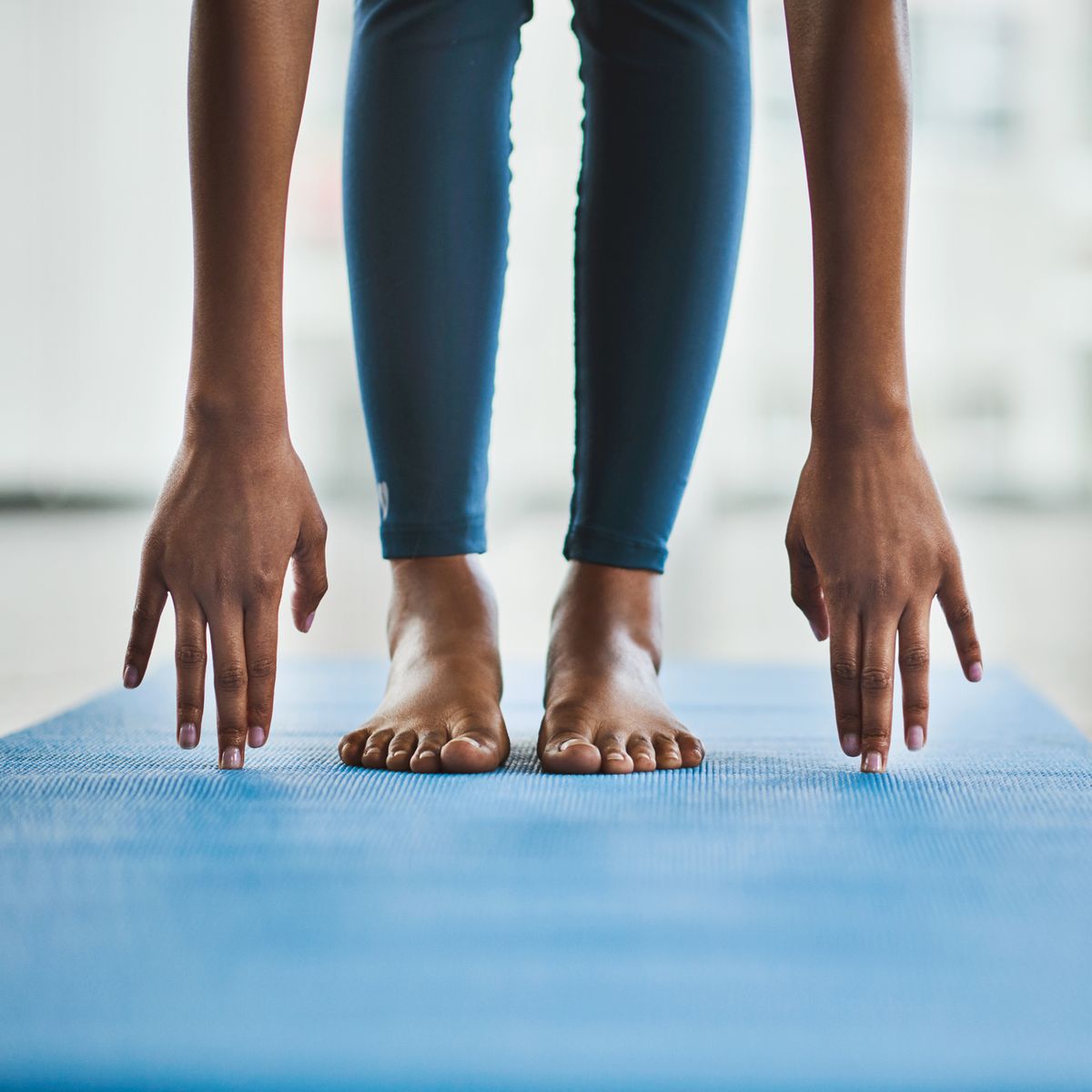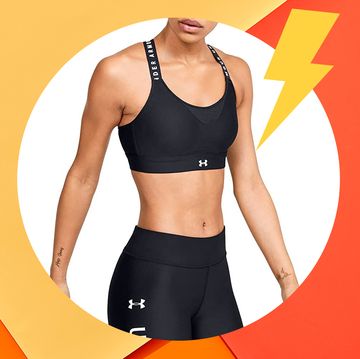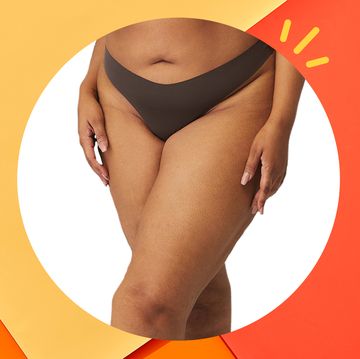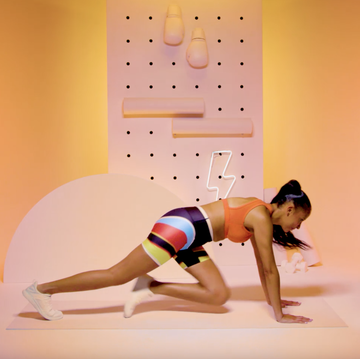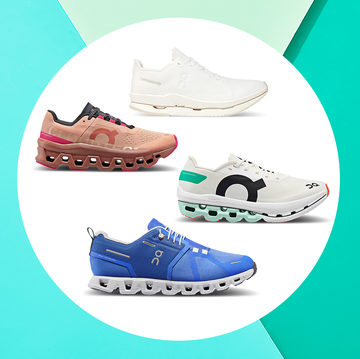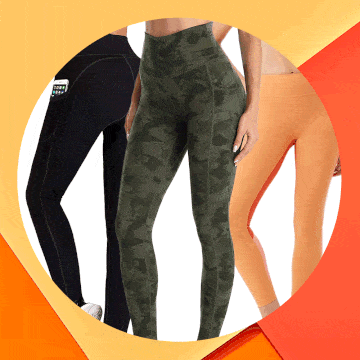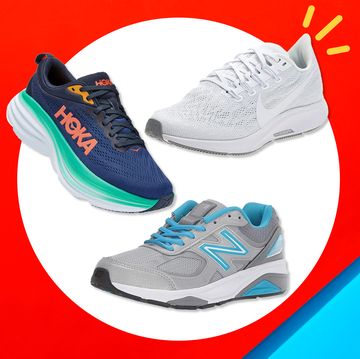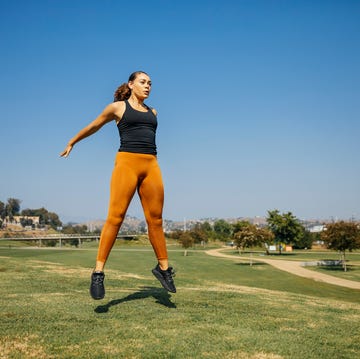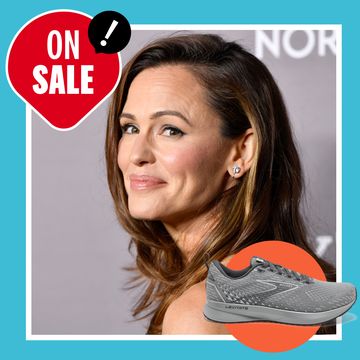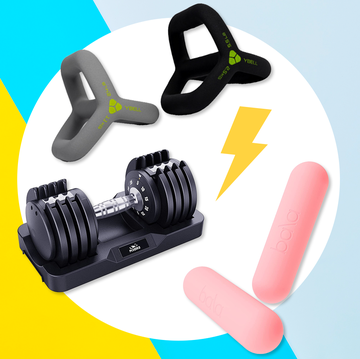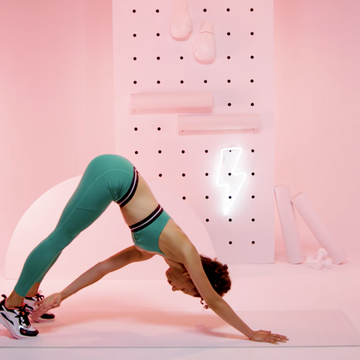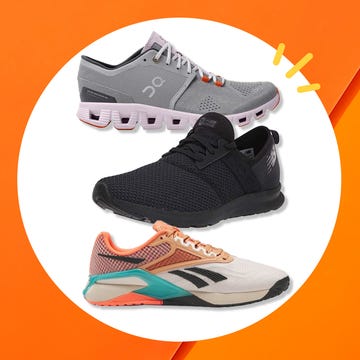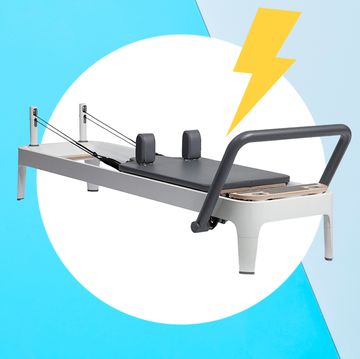For much of my life, I've rested on being naturally slim-thick, forgoing workouts, thinking fitness was rooted solely in physical healthiness—not mental strength. It wasn’t until I relocated to Los Angeles from Oakland in March 2022, leaving the comfort and everything I once knew to do a life reset and embark on my dreams, that I realized how much I needed to incorporate a workout routine for my mental health.
Moving to a different city, starting graduate school, and finding a new job can be a daunting and isolating experience. I noticed myself consumed with work, networking, and adjusting to a new place, and I needed to improve my self-care. I knew I needed to create a fitness regimen, but there was one significant issue: I hated working out at the gym.
The large weight machines were intimidating, and I got bored quickly. When left to my own devices, I was not consistent. I knew I needed to take a structured workout class instead. But in a massive city like Los Angeles, it was hard to ID a suitable class for me. I have a background in dance and ballet, but my work and school schedule made attending classes nearly impossible.
More From Women's Health

That’s where Pilates came in. I heard of the practice through my Black girlfriends at work. I admittedly thought Pilates was just another fitness trend, given a resurgence of buzz around the practice that occurred when Lori Harvey’s workout routine went viral on TikTok last year. I wasn't familiar with the long, established history of the method (it's been around since the '20s), and I never saw Black women represented in mainstream media promoting the activity. (And, let's be real, Lori's physique and celebrity status don't exactly represent Black women of the masses.) To be honest, I didn't think Pilates had room for Black women like me.
After my enthusiast friend recommended a studio that offers high-intensity Pilates-inspired workouts on reformer machines near me in Culver City, I decided to go to my first class. She assured me it was worth trying despite my skepticisms, and I saw how much the practice became part of many of my Black friends' core wellness and self-care regimens, despite the lack of representation. So I wanted to try.
I went into my first session nervous and intimidated by the studio.
I looked around and saw a neon pink sign that said, “Look it, feel it, love it,” and a sea of white girls with flat stomachs and flatter asses. I couldn't help but notice the women in my class were very thin. In recent years, I began forming an unhealthy opinion about my body—constantly judging and critiquing my curves, which was unlike me. I was always comfortable in my body, but the pandemic led to some changes in my body image after I gained some weight and started to feel apathetic about fitness altogether.
For these reasons, I quickly wanted to pack up my canvas tote...but something stopped me.
I reminded myself that this class is just for me—one of the only hours in my life that doesn’t serve others. Just me.
I took a deep breath and straddled the Megaformer machine (FYI: This machine is a more souped-up version of a classic Pilates reformer—but it's not considered to be traditional Pilates. Just acknowledging that!) When the pop music started playing, everyone uniformly raised from their machines, adjusted a yellow lever, then hopped back on quickly to start in a child’s pose. I anxiously followed along.
I bent my knees and extended my arms to the front of my platform, gently moving the machine’s carriage back and forth, all while keeping my core engaged in a plank position. “Here comes the workout,” I said to myself. Next, we all rose into downward dog.
I was exhausted at this point, but I didn’t stop. I wanted to see these exercises through and get the most out of the $20 class. I felt my toes gripping the carriage, the rubbery toe socks helping to ground me on my machine.
After a while, hearing the carriage shift back and forth began to feel soothing and therapeutic. Elongating and stretching my limbs past my expectations surprised and excited me—I didn’t think I could surpass my limitations in only an hour, yet it was happening before my eyes.
As we continued the circuits, I noticed how good my body felt.
This experience was the first time in a while that I wasn’t distracted about knocking the next thing off my to-do list. Instead, I was present and focused, even grateful to my body for carrying me through.
I was amazed at how quickly my perception of my body changed and how my anxiety faded away. I walked into class feeling insecure and left feeling encouraged, loved, and supported by my body and the universe.
I knew I wasn’t the best in my class, but that didn’t matter. For once, I didn’t care about being excellent or being seen as the best in something. I enjoyed being a beginner and relished that I wasn’t “good” or advanced at something. It took the pressure off, and as Black women, we need less stress. I got to sweat, meditate for the last 10 minutes of class, and praise my body for not abandoning me.
Pilates has quickly morphed into a self-love ritual for me.
In my practice, I have no choice but to surrender and ground myself, and it has helped me do that outside the studio too. I am able to manage the pressures of my week and career more effectively. Class is one of the only places I feel honored and cherished for simply showing up to try. I now practice several days out of the week at a studio because it gives me peace by allowing me to check in with myself.
And, despite my appearance being different than others, I feel no judgment, and that acceptance has helped me love the skin I’m in again. For one hour, I get to dedicate time to care for my body and honor the skin I’m in—which is so important in a society that would prefer me to do the opposite.
Pilates has quickly morphed into a lifestyle, and I can't believe I once thought it was a passing trend. I’ve gained more confidence and a greater sense of self. I started to love my curves again, my petite frame, my large thighs—all parts of me that helped me get through the difficulties of class and serve as a reminder of just how much my body can endure.
So, is Pilates for Black women? It’s for everyone...and especially us.
As I've deepened my practice, I've learned more about Black women's roles in the evolution of Pilates—beginning with Kathleen Stanford Grant, the first woman to be certified in Pilates under Joseph Pilates himself, and manage a studio. "Many times, we [Black women] feel disconnected in our bodies and spirits until we find out that, all along, there was this history that brings us all together," Sonja Herbert, the founder of the Black Girl Pilates collective, tells me. "It is a spiritual relevance that heals us through movement, knowing that we were a part of Pilates' history."
Black women deserve this self-care, and for a while, I forgot just how much I needed to schedule a time to center myself through breathing and stretching. It’s helped release all the pressures I experience throughout the week and my life. And knowing we *are* part of the Pilates community and origin story makes this life shift that much more meaningful.
"As [Black women] do more Pilates and explore our Black history behind the method, more and more of us will realize that the method itself is for our bodies just as much as it is for anyone else," Herbert adds.
After each class, I have this wonderful realization that I am a breathing human who can stretch beyond imagination and perceived expectations, but who knows her limits. Pilates, intended to be a strengthening practice, actually makes me softer, more at home in my body.
Dominique B. Fluker is a journalist and essayist based in Los Angeles. She is the Lifestyle Editor at ESSENCE and creates purpose-driven and multicultural content for ForbesWomen, Glamour, Travel & Leisure, Insider, Shondaland, and more.
